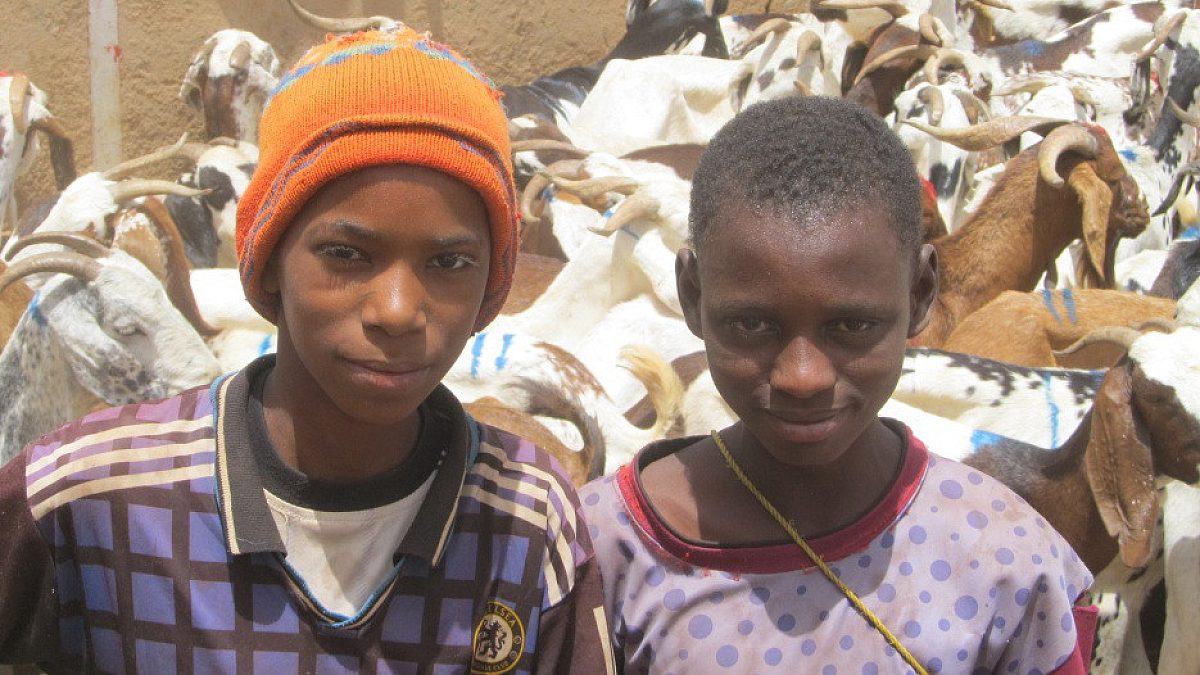The Fight Against Global Hunger Continues
TOPICS
NutritionGuest Author
Special Contributor to FB.org

photo credit: M. Eilitta
Guest Author
Special Contributor to FB.org
By Rep. Ted Yoho @RepTedYoho and Dr. Gbola Adesogan @Livestock_Lab
With the recent commemoration of World Food Day on Oct. 16, we want to take this opportunity to highlight that since 2010, Feed the Future, the U.S. government’s global hunger and food security initiative, has helped more than 23.4 million people lift themselves out of poverty. The initiative has also prevented 3.4 million children from being stunted and ensured that 5.2 million families no longer suffer from hunger. Additionally, these investments benefit U.S. farmers by increasing United States’ trade and agricultural exports to Feed the Future countries by more than $1.4 billion since 2010. Moreover, the United States is by far the biggest donor to the U.N. World Food Program, this year's Nobel Peace Prize winner for its work combating global hunger.
While we made incredible progress in terms of combating food insecurity, hunger and malnutrition, there has been a rise in world hunger for the fourth year in a row. Prior to the COVID-19 pandemic, the absolute number of undernourished people increased to more than 820 million in 2018, from around 804 million in 2016. Additionally, 144 million children were stunted and 47 million children experienced wasting in 2019. Unsurprisingly, the COVID–19 pandemic has already severely exacerbated these challenges by exposing vulnerabilities in global food systems and limiting access to health services.
Due to the coronavirus, an additional 130 million people could be pushed to the brink of starvation by the end of 2020.
Recent World Food Program reports estimate that, due to the coronavirus, an additional 130 million people could be pushed to the brink of starvation by the end of 2020. The pandemic also is pushing more children into a state of severe malnutrition, and there undoubtedly will be an increase in preventable, premature child mortality and life-altering physical, cognitive and behavioral development problems for millions of children globally as a result. The United Nations Children’s Fund projects that an additional 6.7 million children under 5 could suffer from wasting this year due to COVID-19.
The World Food Program, UNICEF and the U.S. government’s Feed the Future programs are all essential for fighting global hunger and malnutrition. For example, as one of USAID’s 21 Feed the Future Innovation Labs, the University of Florida’s Innovation Lab for Livestock Systems has received $49 million in funding from USAID to sustainably intensify smallholder livestock systems to improve the nutrition, health, livelihoods and incomes of the poor.
The Feed the Future Innovation Lab for Livestock Systems and other Feed the Future Innovation Labs are helping Florida agriculture by 1) bringing new solutions and knowledge to Florida, 2) expanding markets for sale of Florida agriculture products, 3) tackling livestock and crop diseases abroad to prevent them from getting to Florida and 4) developing improved genetics for pest-resistance and heat tolerance for livestock and crops. We believe that the world depends on labs like these because they draw on the expertise of top U.S. universities and developing country research institutions to find innovative, cost-efficient and sustainable solutions to food-security and nutrition challenges.
The Board for International Food and Agricultural Development recently released a report which concluded that agricultural assistance not only stimulates growth in the world’s poorest regions, but it also benefits U.S. producers and consumers through increased exports and jobs, technology spillovers, health and nutrition, and global and U.S. security.
While the full impacts of COVID-19 on hunger, food security and nutrition have yet to be realized, the U.S. should be taking every possible step to ensure that food aid and nutrition assistance are able to reach those in greatest need. We believe that American ingenuity and leadership can and will save lives and ensure economic prosperity globally, and it also will protect Americans both here and abroad.
Rep. Ted Yoho (R-Fla.) represents Florida’s 3rd congressional district. Dr. Gbola Adesogan is the director of the Feed the Future Innovation Lab for Livestock Systems and professor of ruminant nutrition at the University of Florida.
